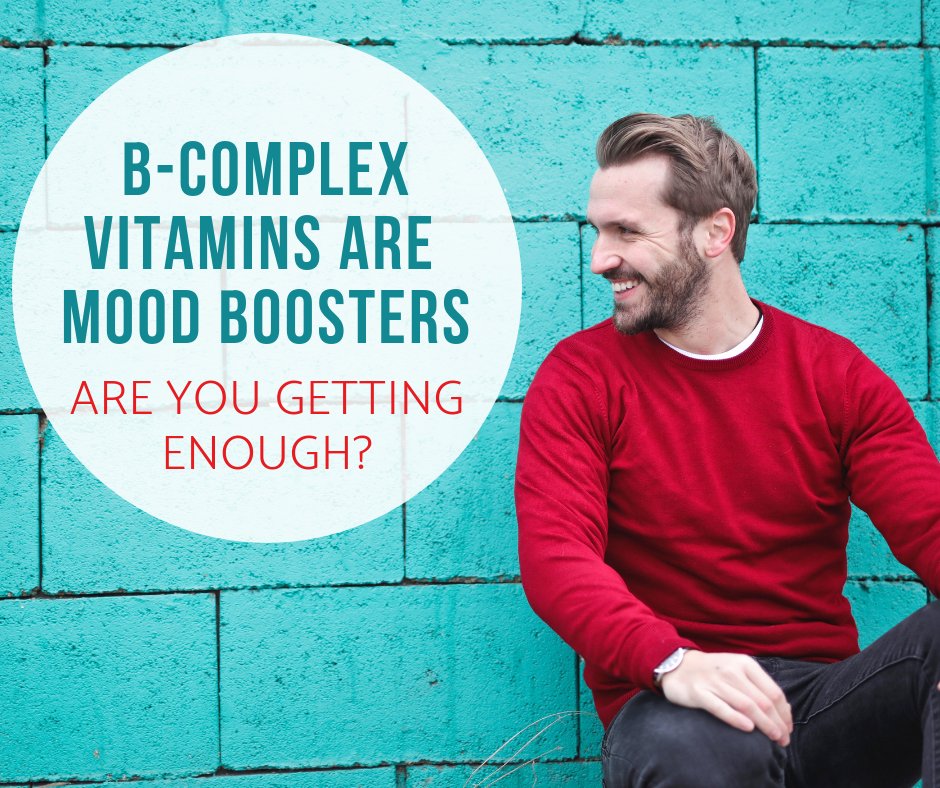B vitamins: why do you need them
B vitamins are sometimes called the ‘energy’ vitamins, since they help put a spring in your step and play an important role in maintaining your energy levels. (In fact, they play such a key role that perhaps they should also be called the “Brisk, Bouncy, and Bright” vitamins) In actuality, there are eight different kinds of B vitamins, and each one has its own distinct job (details on each below).
How do B Vitamins Help?
These vitamins work as a carefully orchestrated team. Together they play an important role in:
● Regulating moods
● Reducing impacts of stress
● Maintaining bone mineral density, reducing bone fracture risk
● Improving cognitive performance and energy overall
● Contributing to cardiovascular health such as by regulating blood pressure and reducing risk of stroke
● The proper use of your proteins, fats and carbohydrates
Protecting and Absorbing Your B Vitamins
A healthy diet should provide adequate amounts of each B vitamin. However, because they’re water-soluble vitamins, most B-vitamins aren’t stored in your body and are eliminated when you pee (B12 is an exception here). That means you must replace them every day. It also means that the vitamins can be washed away by over-boiling as well as over-heating foods. To preserve B vitamins and vitamin C, steaming is the ideal method for cooking. In addition, certain medical conditions can interfere with your ability to absorb B vitamins. For example, people with Hypothyroidism, Hypochlorhydria, Crohn’s disease, and Celiac disease are at high risk for deficiencies. As well, alcoholics often have low levels. Aging is also an important factor – recent studies have demonstrated that the diets of seniors are commonly deficient in vitamins B2, B6 and B9– by about 30% for each of these B vitamins! Add medications into the mix and your B-vitamin levels can take a deeper hit; this is especially true for those taking stomach acid-blocking medications and metformin (a common medication for type 2 diabetics).
The Various B Vitamin Sources and Functions
What does each B vitamin do? Take a look at the benefits and possible sources for each member of the B-complex team.
B1 (Thiamine):
Vitamin B1 helps convert carbohydrates into energy. Without enough B1, we can feel tired and lethargic. This vitamin also plays a role in the flow of electrolytes in and out of our muscles, so low levels can lead to muscle weakness. B1 can also help regulate blood sugar.
Great sources of B1: Beans and peas, asparagus, flax and sunflower seeds, oats, barley.
B2 (Riboflavin):
Vitamin B2 also helps us convert the things that we eat into energy. It also plays an important role in red blood cell production. Interestingly, one study singled out B2 as being particularly helpful in protecting against postpartum depression. B2 enables the body to recycle glutathione, a very important antioxidant, which also binds to help rid a range of toxins. Physical signs of B2 deficiency include dry, chapped lips.
Great sources of B2: Dark leafy-greens, mushrooms, soy, eggs, turkey, cold-water fish, almonds, yoghurt. Fun fact: vitamin B2 is the b-vitamin that can colour your urine yellow.
B3 (Niacin):
B3 contributes to our metabolic functions and energy production. It also helps regulate our nerves and assists with the production of serotonin, so low levels can contribute to depression.
Great sources of B3: Meat, fish and poultry; mushrooms, asparagus, sunflower seeds, peanuts. Although over-consuming B3 won’t happen with food sources, overdoing niacin supplements can lead to flushed skin, nausea and possible liver problems.
B5 (Pantothenic acid):
Vitamin B5 is used for a variety of roles in the body. It’s important to allow the proper processing of your fats, proteins and carbohydrates. It’s also fundamental for hormone production and immune function. Research suggests that Vitamin B5 helps to regulate our adrenal glands. That means that maintaining good levels of pantothenic acid can help cope with stressors. It is found in a wide variety of foods, plant and animal.
Great sources of B5: Mushrooms, root and leafy vegetables, poultry & meats, legumes.
B6 (Pyridoxine):
Vitamin B6 plays several essential roles in our metabolism. In fact, it’s involved in over 100 enzyme reactions. For instance, it aids in the production of insulin and hemoglobin. It is also required to make 3 important brain neurotransmitters – GABA, dopamine and serotonin – which allows for proper mood and nerve functions. It’s also important in liver function, allowing the liver to detoxify chemicals and waste properly. Because B6 helps to metabolize estrogen hormones, a deficiency can lead to more intense premenstrual symptoms as well as changes in mood. It is found in a wide variety of foods, plant and animal.
Great sources of B6: Beans, nuts, leafy green vegetables, meat and poultry, fish.
B7 (Biotin):
In addition to its role in converting fat and carbohydrates to energy, vitamin B7, more commonly called biotin or sometimes vitamin H, helps our hair shine and our skin glow. In fact, it gets the alternate name of vitamin H from the German words for hair and skin. It’s also very important in proper insulin hormone production.
Great sources of B7: Nuts, many vegetables, fish.
Vitamin B9 (Folic acid):
Folic acid has an impressive list of tasks. It’s essential for hemoglobin production, as well as protein metabolism. It may also help reduce your risk of heart disease and cognitive decline. Because folic acid can help repair damaged genes, it may even slow the aging process. Pregnant women should ensure they get enough folic acid, as it can reduce the risk of birth defects.
Great sources of B9: beans and greens
Vitamin B12 (Cobalamin):
Vitamin B12 is the largest vitamin and is one of the key vitamins for converting food to energy. Together with B9, it works to produce red blood cells and helps with iron absorption. It also helps your nerves to function properly, which is why when B12 is low you may experience nerve-related symptoms – burning or tingling sensations. Vitamin B12 plays such an important role in our moods and cognitive function that sometimes patients are diagnosed with depression or Alzheimer’s when they actually are short on B12. B12 deficiency is poorly diagnosed from regular blood tests since blood does not indicate cell and tissue levels (click here to read more on this). Vitmain B12 is not produced by plant or animal cells themselves, but by microorganisms such as bacteria and fungi. Because vegans are often unable to get B12 through food sources, they can experience fatigue, nerve issues, and other symptoms of anemia unless they take B12 supplements or nutritional yeast grown on particular growth media such as molasses.
Great sources of B12: Fish and meat, poultry and dairy, nutritional yeast and fortified rice/soy/almond ‘milks.’ Variable and sometimes sufficient amounts may be found in mushrooms (oyster/cremini/shiitake) as well as in fermented foods such as tempeh, natto and sauerkraut.
Make Sure You Have Adequate B-Vitamin Levels!
As you can see, the B-complex vitamins are essential for good physical, cognitive and mental-emotional health. In fact, newer research shows how specific Bs can help in the treatment of Autism, Parkinson’s disease, Alzheimer’s disease and multiple sclerosis. If you’re wondering about your B-vitamin levels, it’s best to review your symptoms and diet with a healthcare practitioner. The correct amounts of B vitamins that you should be consuming can depend on many different factors, like your age, gender, and other factors. Together, we can work on a plan to brighten your mood, increase your energy and ensure your body is functioning properly with the help of B vitamins. Contact us online or at 905-597-7201.




